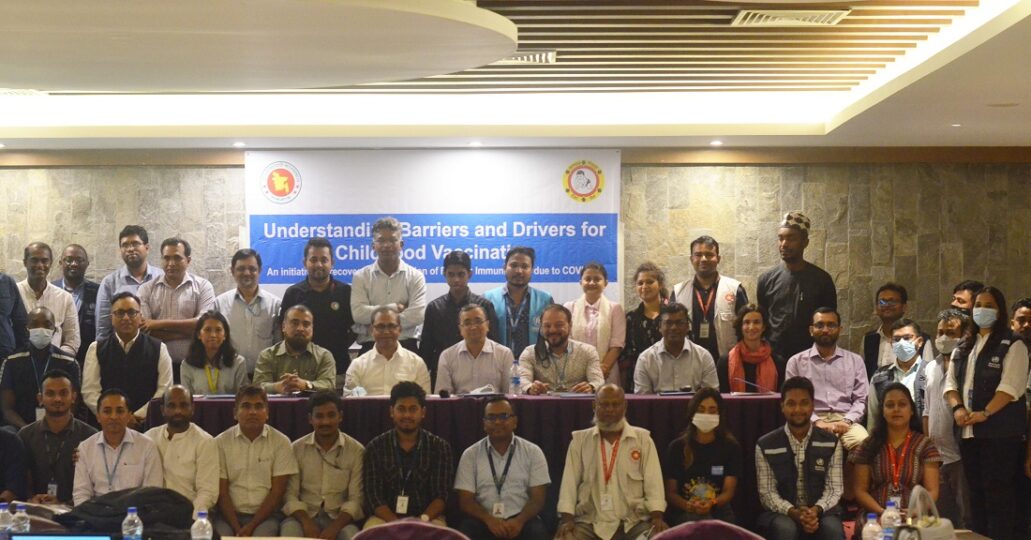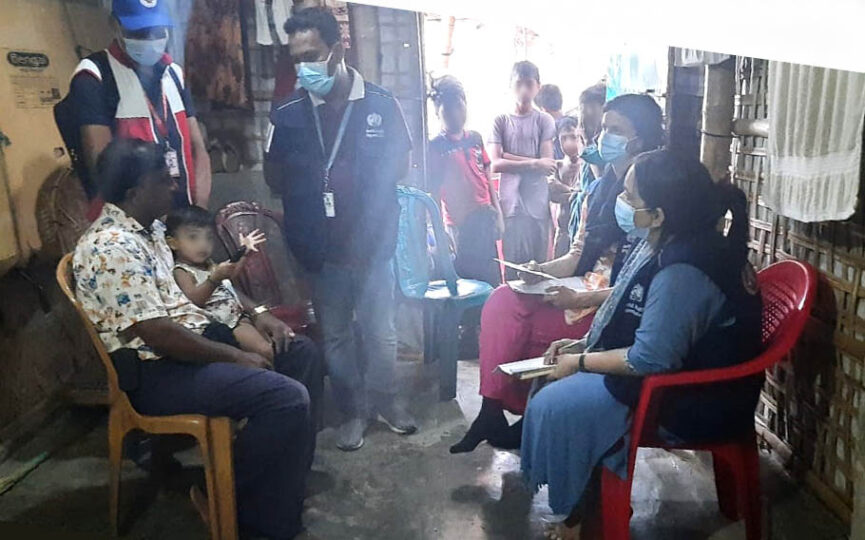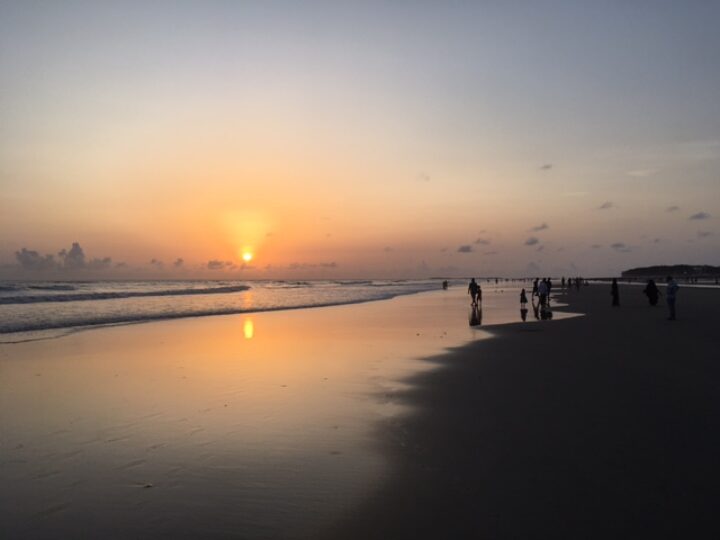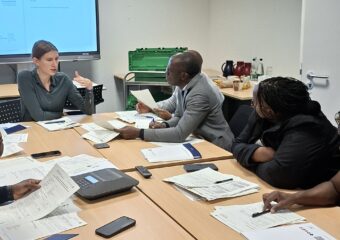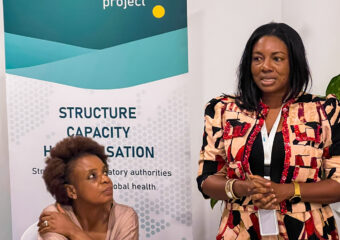TIP Bangladesh – Mission to Cox’s Bazaar in May 2022
TIP Bangladesh is a project on vaccine hesitancy in the Rohingya refugee camps in Cox’s Bazaar, Bangladesh. The visit aimed to bring together project partners from RKI and Cox’s Bazaar together with key stakeholders in a workshop on barriers and drivers to childhood vaccinations.
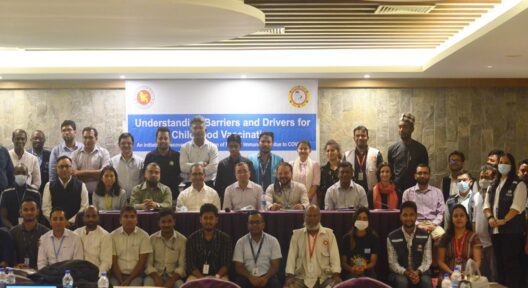
FDMN (Rohingya refugees) and infectious disease outbreaks
In 2017, about 700,000 Forcibly Displaced Myanmar Nationals (FDMN) arrived in Cox’s Bazaar, Bangladesh, from the neighboring State of Myanmar. This influx added to previous refugees, as FDMN have fled from ethnic and religious persecution since the 1970s. Today, about one million FDMN stay in makeshift camps. Since the major influx in 2017, the camps have witnessed severe disease outbreaks such as diphtheria, measles and cholera. Routine childhood immunization rates among FDMN children in Cox’s Bazaar remain low.
Workshop
The World Health Organzisation (WHO) Sub Office, Cox’s Bazaar is closely involved in immunization activities in the camps. Robert Koch Institute (RKI) staff visited to meet with the project coordinator who is working in the WHO sub office and acts as a gatekeeper for the survey in the camps as well as a key team member in all other project phases. The workshop brought together about 50 people from different organizations involved in immunization activities in the camps such as UNICEF, the UN Refugee Agency (UNHCR), Doctors Without Borders (fr. Médecins Sans Frontières, MSF) and WHO together with political partners from the Government of Bangladesh, the Ministry of Health and others. There was an active exchange between all parties through presentations of activities (e.g. surveys in the camps, rapid assessments), data analyses (e.g. regarding current childhood vaccination coverage) and discussion rounds.For the project, results of our literature search and planned methods for the survey were presented and discussed. This helped to receive important input for the survey preparation, but also aimed at increasing the support of key stakeholders during and beyond the project.
Camp visit
The main refugee camps Ukhia and Teknaf are located about 1-hour drive from the city of Cox’s Bazaar and the WHO Sub Office. One camp of Ukhia was visited together with WHO staff, a data collector and a community health worker (CHW), who lead us through the camp. The data collector supported in translating while we conducted interviews with our drafted questionnaire with different people in a Mahjee’s (community leader’s) household. It showed that the questionnaire needed general adaptations, mainly about the simplicity of questions and a more practical than theoretical approach.
Conclusions and next steps
The visit and exchange between all parties were a great networking and team building opportunity. Speaking to the people that the survey actually aims at was key in understanding that certain scientific approaches need adaptations to different contexts. Visiting one camp in Ukhia was just a small insight into the living environments of FDMN, but helped to gain a better understanding of the circumstances.
The project follows the Tailored Immunization Program (TIP) developed by WHO Europe, which aims to create evidence-based interventions to improve vaccine coverage, drawing from social science theories. The workshop was part of Phase 1 of the program. A final workshop is planned at the end of Phase 3, where evidence from the survey will be presented and translated into tailored and targeted interventions together with stakeholders and local staff.
Date: November 2022

